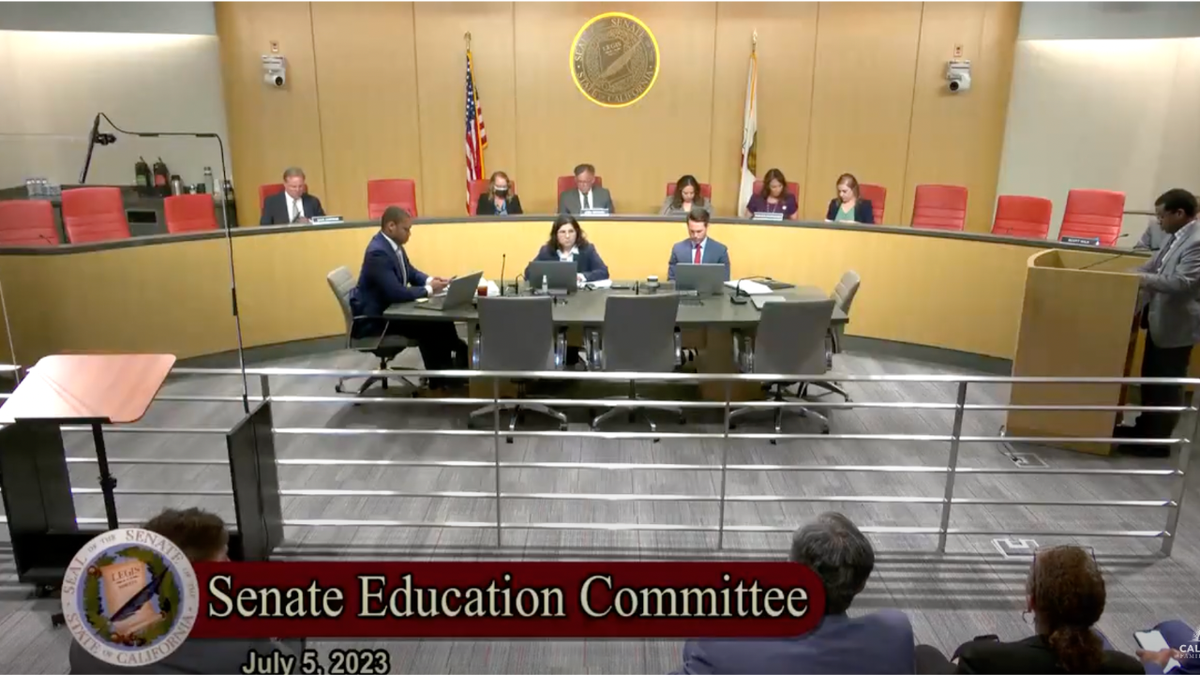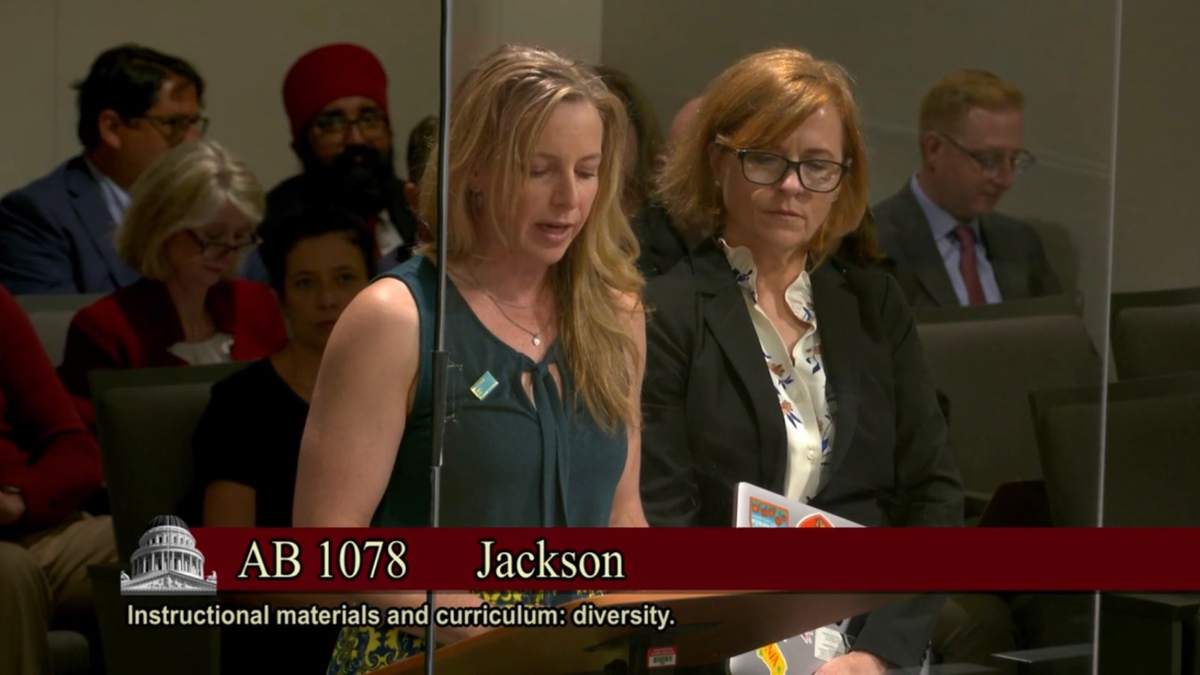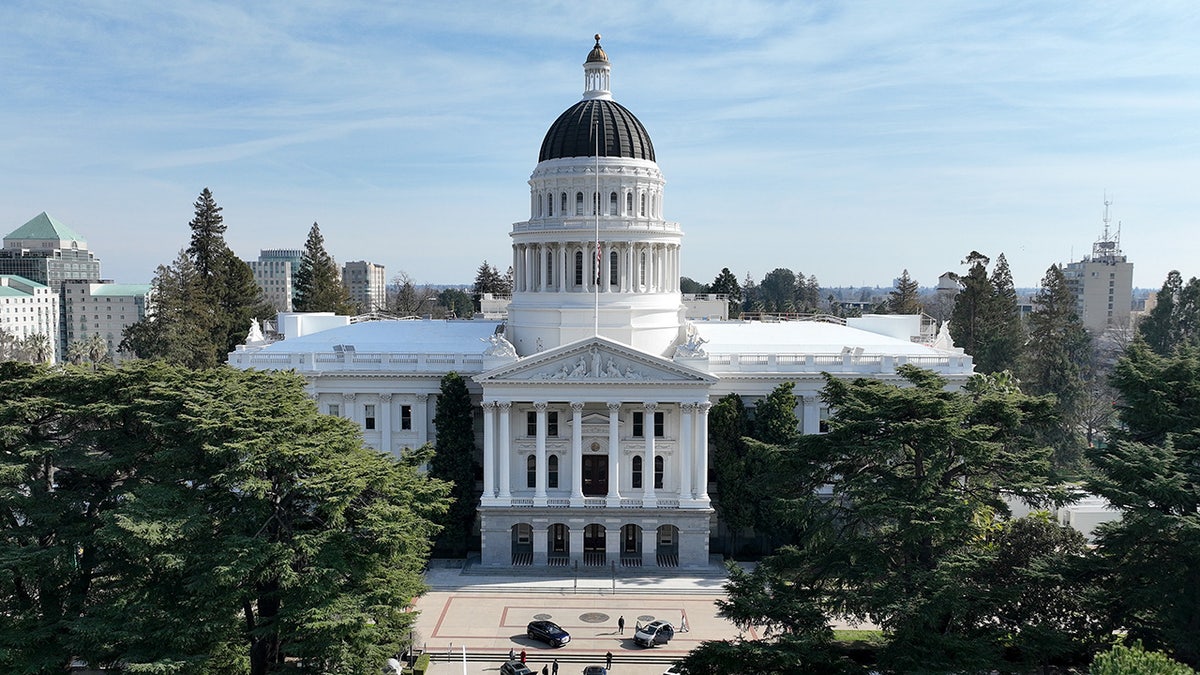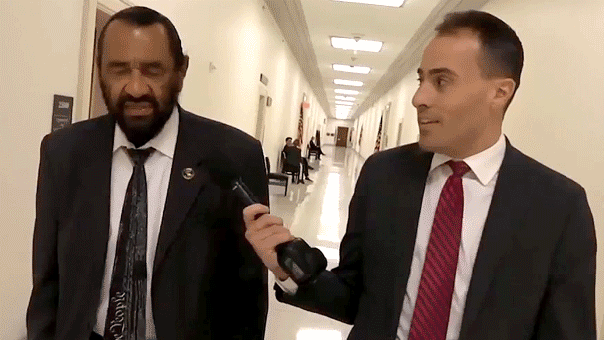Maryland Gov. Moore claims book bans are 'castrating' children: Not allowed to 'understand their own power'
Maryland Gov. Wes Moore argued that book bans were effectively "castrating" school children, especially Black students, and making them ignorant of history.
A proposed California bill would fine school districts that ban books.
Introduced and authored by Assemblymember Corey Jackson of Riverside, the measure does not prohibit book banning. However, it would impose a fine if books are banned because they contain "inclusive and diverse perspectives."
The bill, AB 1078, was created to directly target local school board control of curriculum and books that will be allowed in schools. The measure was heard in the Senate Education Committee and passed 5-2 on Wednesday.

The bill, AB 1078, which directly targets local school board control of curriculum and books that will be allowed in schools, was heard in the Senate Education Committee and passed 5-2. (Fox News )

Tensions were heated during a debate from both sides about book banning at a Wednesday hearing of the California State Senate Education Committee. (Fox News )
Tensions were heated during a debate from both sides about book banning at the hearing of the California State Senate Education Committee.
"Our students of color and our LGBTQ+ students should not be threatened for their viewpoints, and they should not have education withheld from them," State Superintendent of Public Instruction Tony Thurmond, who spoke in favor of the bill, said.
Thurmond went on to say, "As a former school board member, I highly value local control. But local control does not give anyone the right to threaten, bully, or mistreat any of our students."

An aerial view of the California State Capitol on February 01, 2023, in Sacramento, California. (Justin Sullivan/Justin Sullivan)
This comes after a newly released report revealed that nearly 1,500 books were banned in the first half of the 2022-2023 school year. According to PEN America’s Index of School Book Bans lists, there were 1,477 instances of individual books banned during the first half of the 2022-23 school year.
SAN FRANCISCO TEACHER UNION LEADER THREATENS STRIKE IF PAY RAISES AREN'T MET AMID BUDGET WOES
PEN America recorded more book bans during the fall 2022 semester than in each of the prior two semesters.
PEN America also reports that 30% of the "unique titles" banned are books about race, racism, or feature characters of color. They also note that 26% of unique titles banned have LGBTQ+ characters or themes.
PEN America claimed that they have tracked book-banning efforts for the past two years by documenting the growth of groups advocating for book bans, the widespread challenges to books across the nation, efforts on the local level such as school district policies and procedures, and the state-level policies.
The book ban issue has been prevalent in red states such as Texas, Florida, Missouri, Utah, and South Carolina, where it was addressed by local school boards.











































